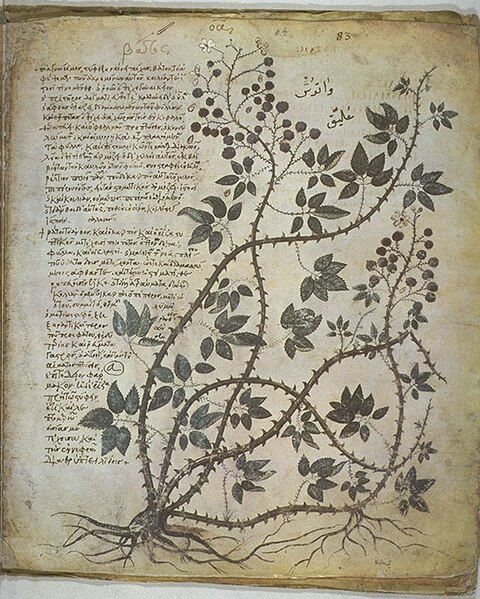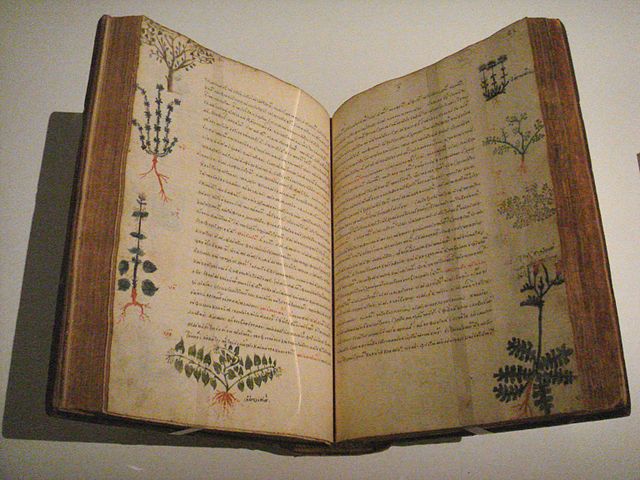Materia medica is a Latin term from the history of pharmacy for the body of collected knowledge about the therapeutic properties of any substance used for healing. The term derives from the title of a work by the Ancient Greek physician Pedanius Dioscorides in the 1st century AD, De materia medica, 'On medical material'.
Page from the 6th-century Vienna Dioscurides, an illuminated version of the 1st-century De Materia Medica
Dioscorides, De materia medica, Byzantium, 15th century.
Dioscorides De materia medica in Arabic, Spain, 12th-13th century
One of the four covers (Arnoullet) of the "Lyons printers' tribute edition to Michel de Villeneuve" edition of the Materia Medica. By Michel de Villeneuve & Pietro Andrea Mattioli, printed by Balthazar Arnoullet in 1554, in Lyons.
The history of pharmacy as a modern and independent science dates back to the first third of the 19th century. Before then, pharmacy evolved from antiquity as part of medicine. The history of pharmacy coincides well with the history of medicine, but it's important that there is a distinction between the two topics. Pharmaceuticals is one of the most-researched fields in the academic industry, but the history surrounding that particular topic is sparse compared to the impact its made world-wide. Before the advent of pharmacists, there existed apothecaries that worked alongside priests and physicians in regard to patient care.
Pharmacy in Rome, Italy
Dioscorides, De Materia Medica, Byzantium, 15th century
Roman herbal medicine guidebook De Materia Medica of Dioscorides. Cumin & dill. c. 1334.
Illustration of a pharmacy in the Italian Tacuinum sanitatis, 14th century.







